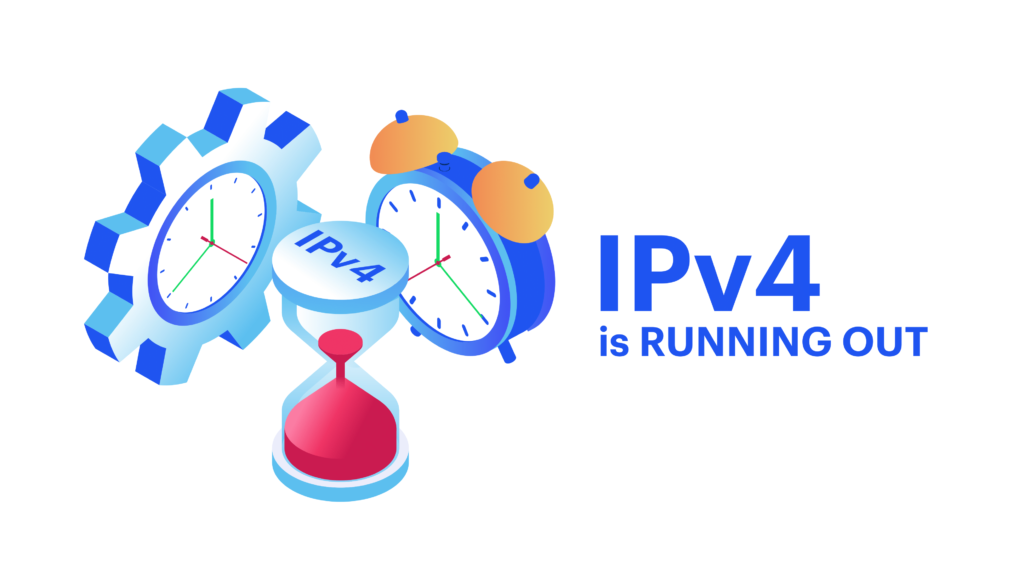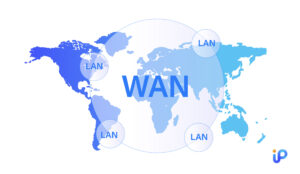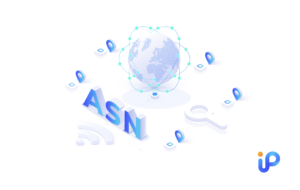6 Min Read | 1 May 2023 | Key words: IP Address, IPv4 vs IPv6, IPv6 Adoption
Will IPv6 Address become the major protocol on the Internet?
IPv4 address is running out
IPv4’s unique addressing scheme requires that each device connected to a network be given its individual IP address. As the booming of Internet development, the demand for IPv4 addresses can not be supported by a limited number of IPv4 addresses. 430 million IPv4 Addresses have been fully assigned to ISPs, except for a reserved amount of IPv4 addresses on a single network. It means that IPv4 will run out at any time. However, will IPv6 Address take over the future need of IP addresses?
It will take a long time for IPv6 to replace IPv4
To stop the global exhaustion of resources, IPv6 was introduced as a solution. However, it has not become the dominant version of the Internet Portocal. Cloudflare has predicted pessimistically that IPv6 would take off in May 2148. Today, Google records just over 40% of IPv6 adoption at peak times. This is nowhere near the number that the developers of IPv6 expected back in 1995.
The chart below shows the percentage of IPv6 capable users in the top 20 countries among different regions as of April 07, 2022 (30-day average):
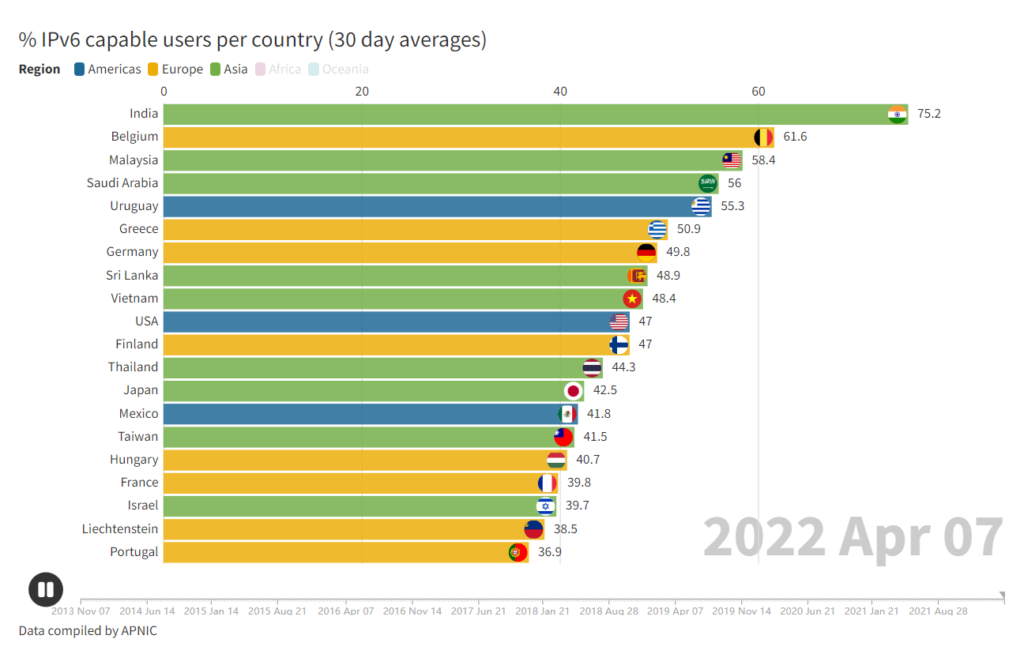
Graph 1: %IPv6 capable users per country in Americas, Europe and Asia
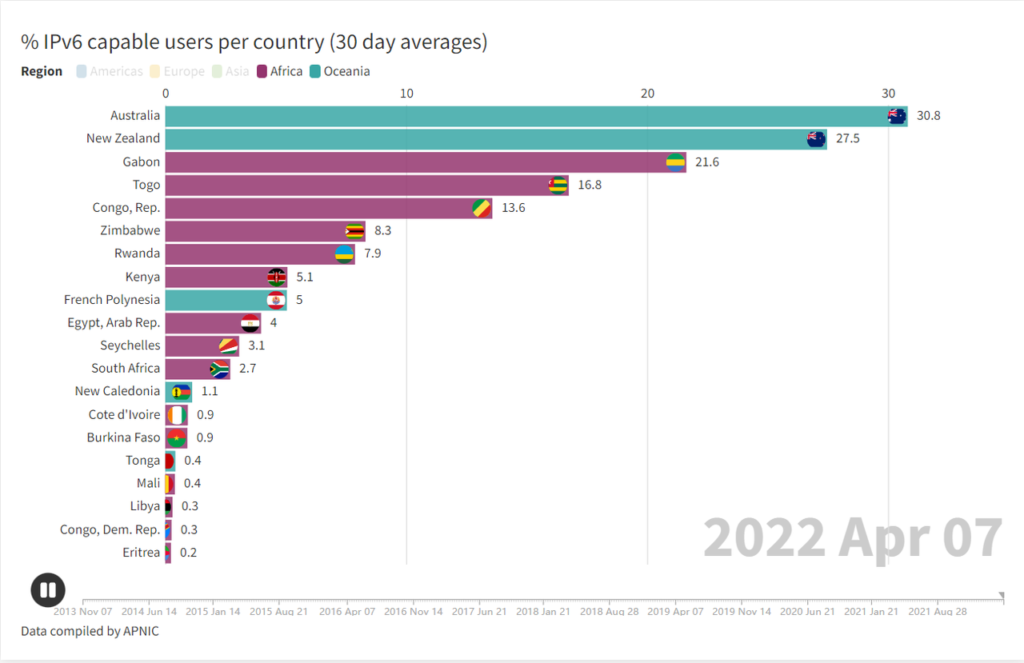
Graph 2: %IPv6 capable users per country in Africa and Oceania
Americas, Europe and Asia belong to the regions with better IPv6 development, but even so, there are only 4 countries in these regions where the percentage of IPv6 capable users exceeds 50%. The percentage of most countries is still far away from 50%.
However, in Asia and Oceania, there are only four countries where the percentage of IPv6 capable users exceeds 10% as of April 07, 2022. Most countries in Asia and Oceania don’t even have 1% of IPv6 capable users. It will take a long time for IPv6 to replace IPv4.
IPv4 vs IPv6
What is IPv4 and IPv6
Internet Protocol version 4 (IPv4) is the fourth version of the Internet Protocol (IP), while Internet Protocol version 6 (IPv6) is the most recent version of Internet Protocol. Both are foundational protocols for standards-based internetworking methods on the web.
An IP address is a numerical label assigned to each device connected to a network. IP addresses are necessary for devices on a network to communicate with each other. IPv4 and IPv6 addresses are the two main versions of IP addresses since there are two main Internet Protocols: IPv4 and IPv6.
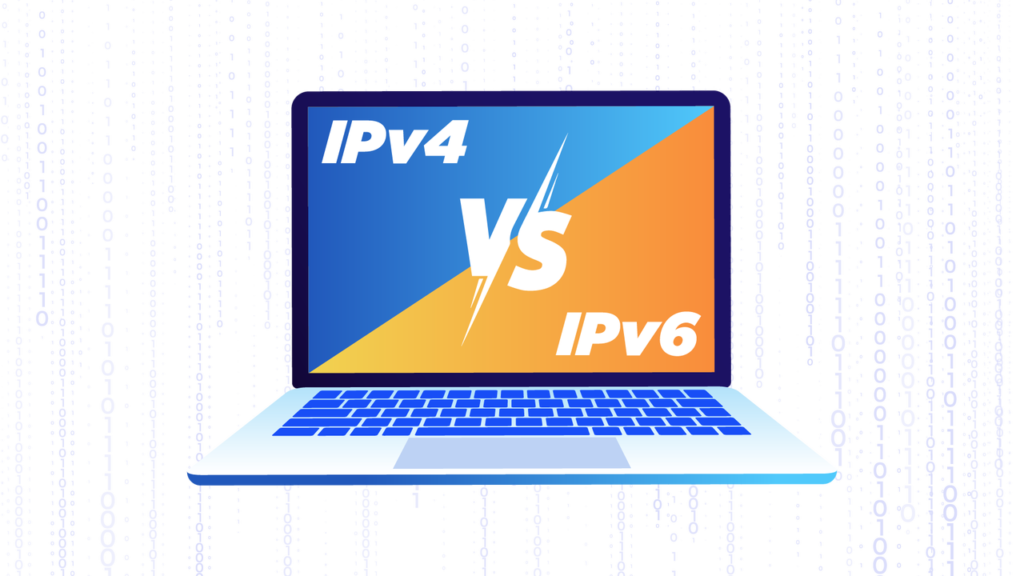
The difference between IPv4 and IPv6
IPv4 and IPv6 are the two main Internet Protocols. There are significant differences between them. For example, IPv4 can be divided into five different IP address classes, whereas IPv6 uses a different format that does not rely on address classes. The following chart shows a detailed comparison of IPv4 and IPv6:
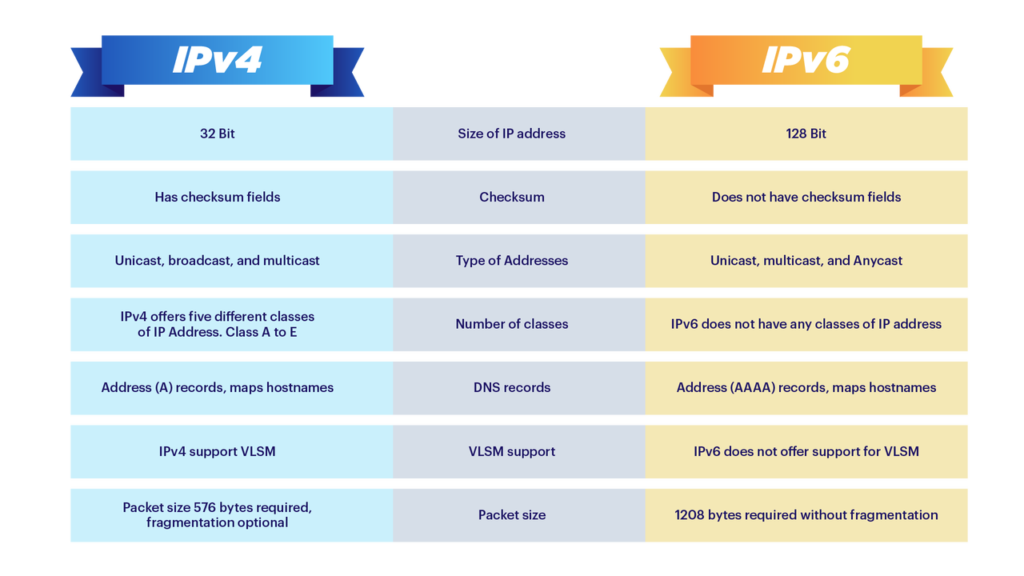
The main pros of IPv6
Compared with IPv4, there are some advantages of IPv6:
- No more NAT (Network Address Translation)
- Auto-configuration
- No more private address collisions
- Better multicast routing
- Simpler header format
- Simplified, more efficient routing
- True quality of service (QoS), also called “flow labeling”
- Built-in authentication and privacy support
- Flexible options and extensions
- Easier administration (no more DHCP)
Biggest challenges of IPv6 adoption
In some respects, IPv6 is better than IPv4. But why is IPv6 adoption still sluggish? These are some of the most common issues concerning IPv6:
Lack of IPv6 specialists
Some companies, such as small businesses, are not ready for IPv6. They usually outsource service providers to handle new technology due to a lack of technology specialists. It requires costs and time if they outsource service providers to handle the move from IPv4 to IPv6, which is not attractive to them.
High costs of devices
High costs of devices are one of the challenges to foster IPv6 deployment. An IPv4 router may not support IPv6. Businesses might need to replace devices that are not IPv6-friendly, which means never convenient or cost-efficient.
Low user willingness
Customers are not pushing for change. There are some customers who do not understand or care about IPv6. It means that companies can’t be motivated to move forward. And it’s possible for users to complain endlessly if shifting to IPv6 comes with technical obstacles.
Network adaptation
Many ISPs are not yet equipped to support IPv6 traffic. Some internet service providers may not be able to handle IPv6 routing protocols, translate IPv4-only websites into IPv6 or support IPv6 DNS resolution.
Security issues
IPv4/IPv6 tunneling mechanism is vulnerable to attacks. IPv6 over IPv4 tunneling encapsulates IPv6 packets within IPv4 headers, allowing packets to be carried over to the IPv6 routing infrastructure. However, routers do not check the content of the packets. Additionally, addresses of IPv6 hosts and relay routers are vulnerable to spoofing.
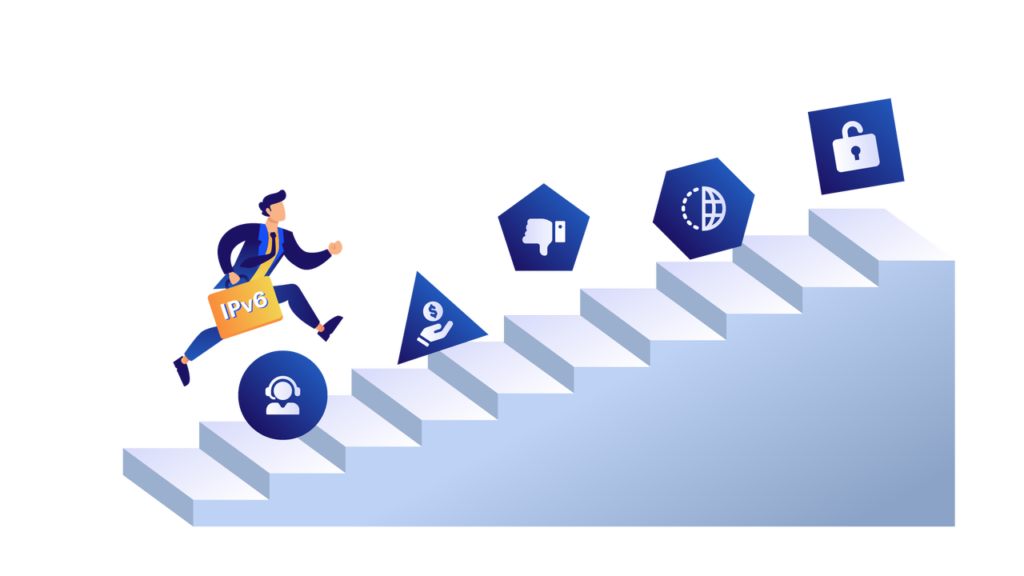
What is the view point of IPv4 Superhub on the revolution of Internet Protocol?
IPv6 Address will be complementary to IPv4 Address
Imaging that IPv4 address can support internet development. There is no reason to develop the next internet protocol IPv5 address or IPv6 address. The key limitation of IPv4 addresses is the number of addresses. IPv6 addresses are easier to deploy on the application layer. IPv4 addresses remain reliable for infrastructure establishment. The main reasons are high costs and fewer IPv6 experts contribute deploying IPv6 addresses. The most ideal way is to build a bi-protocol system to support the booming of the Internet.IPv6 Address will be complementary to IPv4 Address.
We pay effort to maximize the usage of IPv4 address
According to the internal data, more than 95% of lessees or buyers request leassing or buying IPv4 addresses rather than IPv6 addresses. Meanwhile, IPmeetIP provides both IPv4 and IPv6 address leasing and purchasing services. We aim to become a bridge between lessees, lessors, buyers and sellers. As a registered and reliable IP address broker, we offer professional services including IP checking, IP management, and escrow services. You can visit our website to know more about our services.
To know more by visiting IPv4 Superhub website

